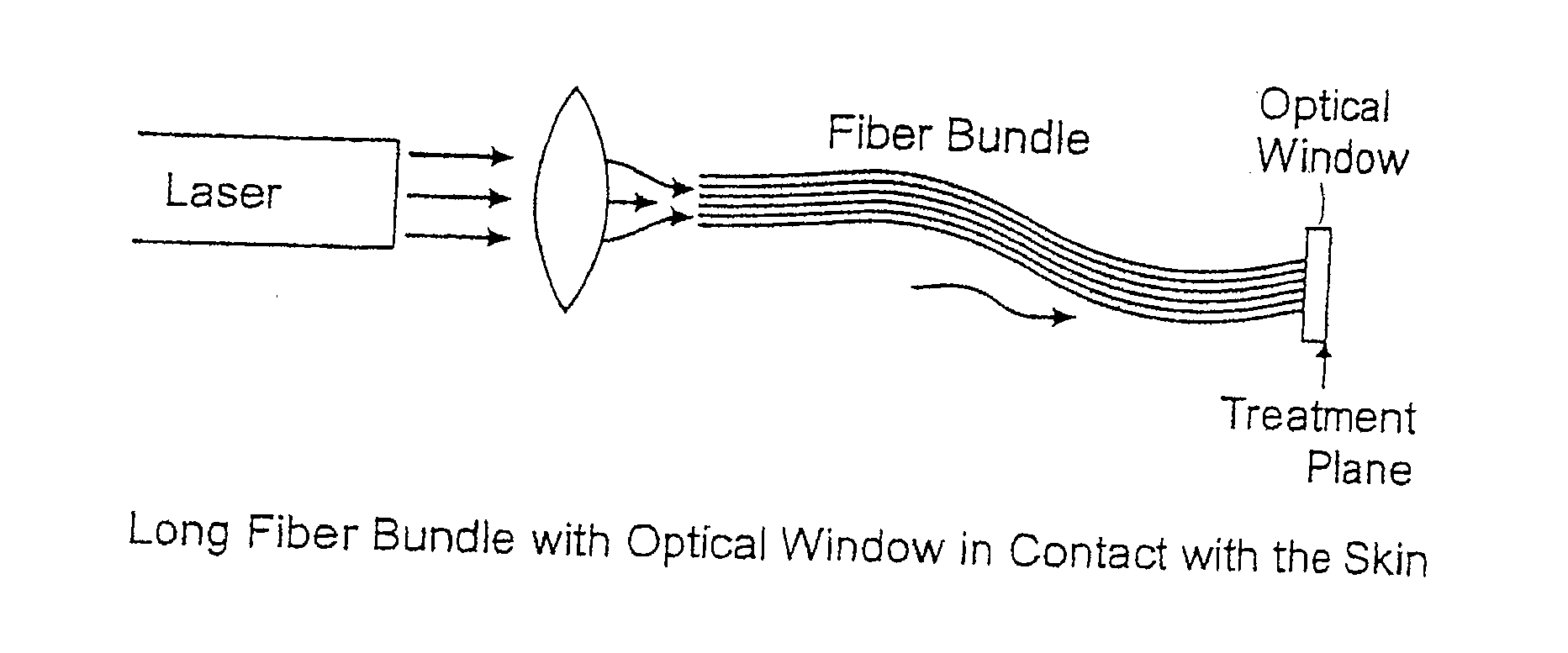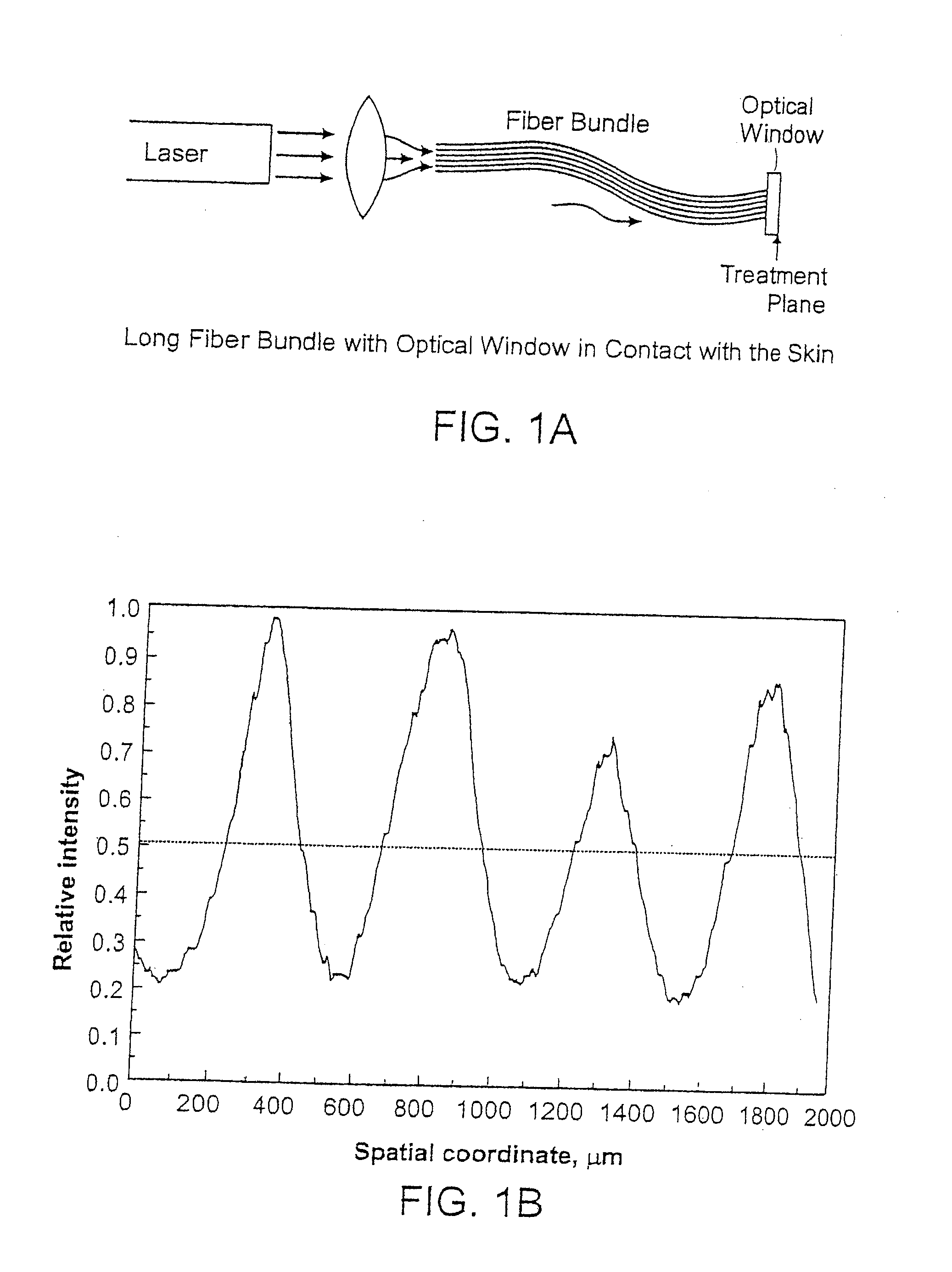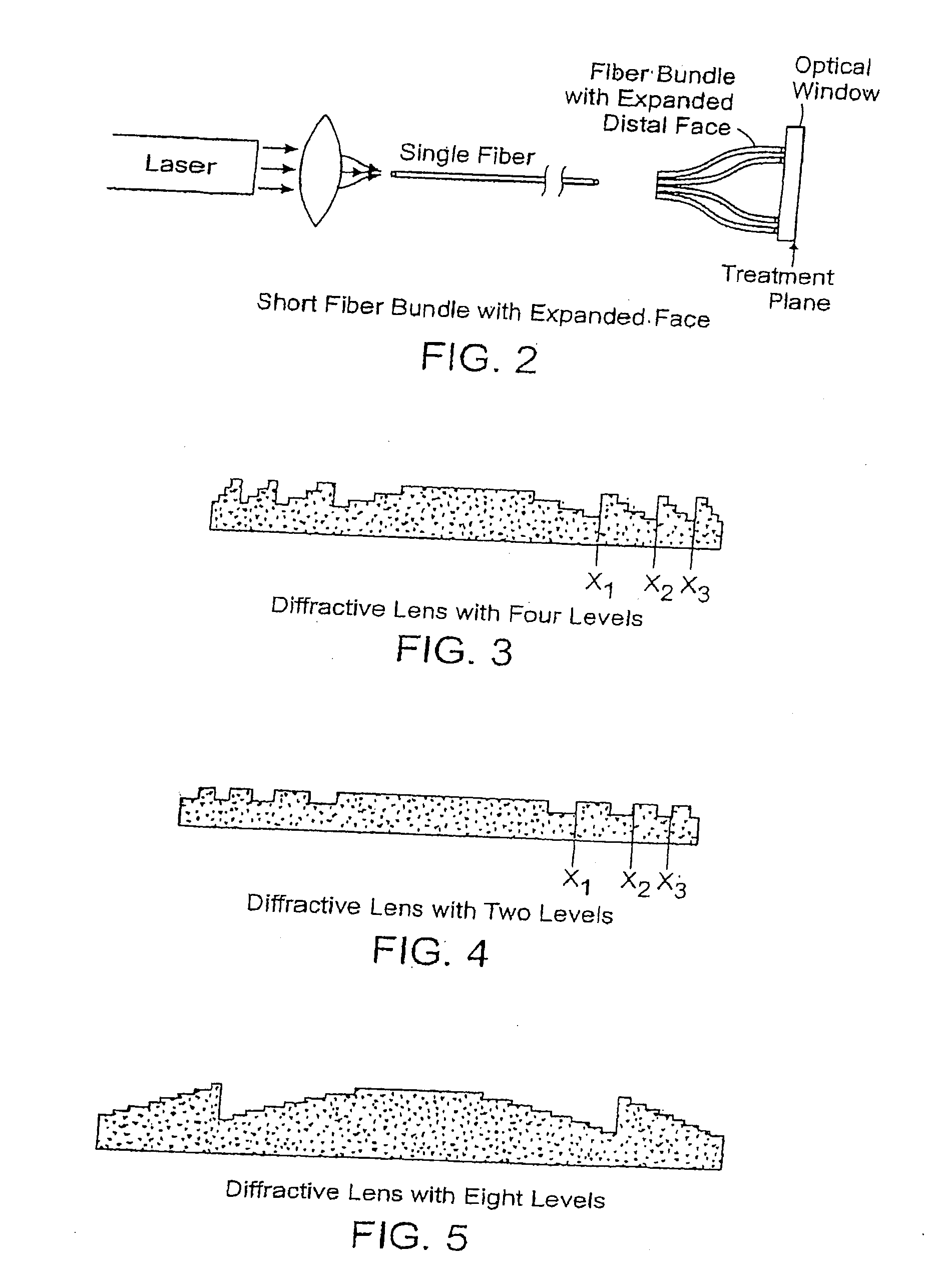Methods And Systems For Laser Treatment Using Non-Uniform Output Beam
a laser treatment and output beam technology, applied in the field of laser treatment using non-uniform output beam, can solve the problems of skin may take a month or more to heal under such a procedure, low efficiency of methodology, pain and epidermal damage, etc., and achieves the effect of reducing peak energies, reducing the area of patients, and high-absorption of laser radiation
- Summary
- Abstract
- Description
- Claims
- Application Information
AI Technical Summary
Benefits of technology
Problems solved by technology
Method used
Image
Examples
Embodiment Construction
[0033]A description of preferred embodiments of the invention follows.
[0034]As shown in FIG. 1A, the apparatus includes a laser source that emits an output beam. The beam is coupled into a bundle of optical fibers using one or more focusing lenses. The bundle preferably contains between 1000 and 2000 separate fibers. Typically, each fiber has a diameter of about 100-200 microns. The output laser beam is thus directed to 1000-2000 smaller beams, each of which traverses the length of the fiber bundle in individual optical fibers. The fiber bundle terminates at its distal end at an optical window that can be held in direct contact with the patient's skin. The window is approximately 1-5 mm thick, and protects the output face of the fiber bundle from contamination, and also permits the beam emitted from each fiber to diverge before it reaches the patient's skin, preferably so that each beam partially overlaps with the beam(s) from adjacent fibers in the bundle.
[0035]The fibers in the bu...
PUM
 Login to View More
Login to View More Abstract
Description
Claims
Application Information
 Login to View More
Login to View More - R&D
- Intellectual Property
- Life Sciences
- Materials
- Tech Scout
- Unparalleled Data Quality
- Higher Quality Content
- 60% Fewer Hallucinations
Browse by: Latest US Patents, China's latest patents, Technical Efficacy Thesaurus, Application Domain, Technology Topic, Popular Technical Reports.
© 2025 PatSnap. All rights reserved.Legal|Privacy policy|Modern Slavery Act Transparency Statement|Sitemap|About US| Contact US: help@patsnap.com



